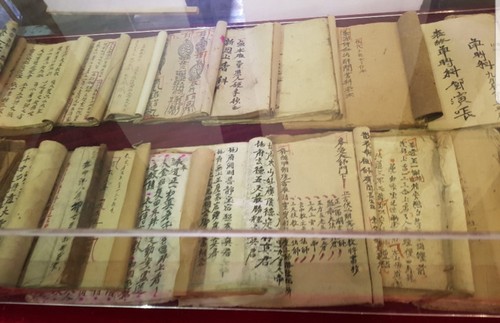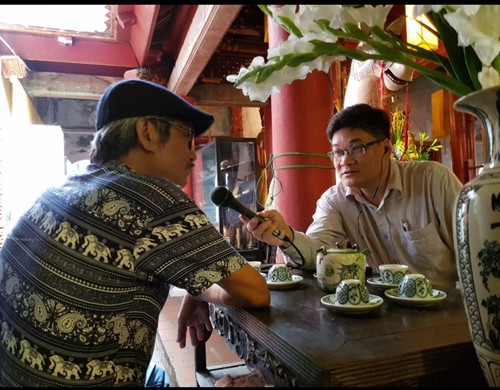 Royal decree paper is the best material for important documents during feudal time. Royal decree paper is the best material for important documents during feudal time. |
A special paper was used by Vietnam’s feudal dynasties for royal decrees and other royal documents. The Lai family clan of Co Am village (now called Trung Nha village) in Hanoi was one of very few families who knew how to make the paper. The craft began in the 15th century in the Le dynasty. Most of the Lai clan got involved in making Do paper, a kind of paper made from the inner bark of the do (poonah) tree and mainly used in folk art, but only Lai Phu Thach’s family can make royal decree paper. Their techniques were handed down from generation to generation.
“600 years ago, the Lai family of Nghia Do commune was commanded by King Le and Lord Trinh to make royal decree paper. I am the 26th generation of the family clan to do this craft,” said Thach.
 Artisan Lai Phuc Thach in an interview with a VOV reporter in May, 2019. Artisan Lai Phuc Thach in an interview with a VOV reporter in May, 2019. |
Starting with Do paper, a number of processes using the family’s secret method are needed to create royal decree paper.
“To enhance the durability, smoothness, and water-proofness of royal decree paper, we use some pest-resistant natural chemicals. The paper is stiff in sunny weather and becomes soft in humid weather. Vietnam’s royal decree paper was recognized as the best quality paper by foreign experts at a conference in Hue city 18 years ago. Some royal decree papers are 700 years old,” Thach explained.
In 2008, Mr. Thach revived the royal decree making craft of his predecessors in order to restore royal decree documents at communal houses and pagodas.
“Not many people are involved in royal decree making because demand is now low. The paper is highly durable and is best for important documents such as degrees, certificates of merit, and dossiers,” said Thach.